May 21, 2025 | 07:00 GMT +7
May 21, 2025 | 07:00 GMT +7
Hotline: 0913.378.918
May 21, 2025 | 07:00 GMT +7
Hotline: 0913.378.918
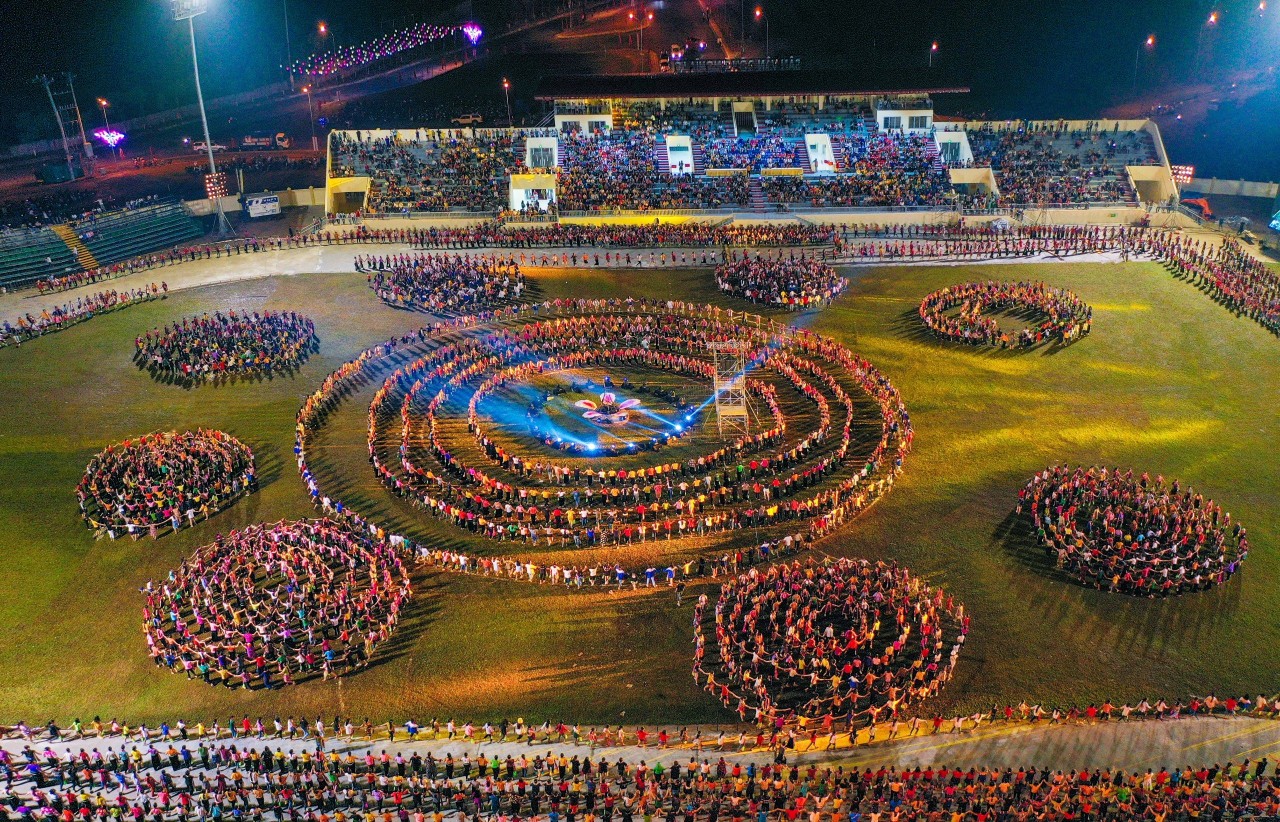
Thai xoe (means spreading) festival is an intangible cultural heritage of humanity.
At this year’s Muong Lo cultural and tourism festival, I met artisan Lo Van Bien again at the xoe (means spreading) festival with exactly 2023 participants performing at the central stadium of Nghia Lo town. His delicate face and silver hair still mark a graceful figure in a short blouse made of the traditional indigo fabric of the Thai people.
The transcendental sense feels precisely like last September when the old man performed at the ceremony to receive the UNESCO certificate registering Thai xoe art as an intangible cultural heritage of humanity.
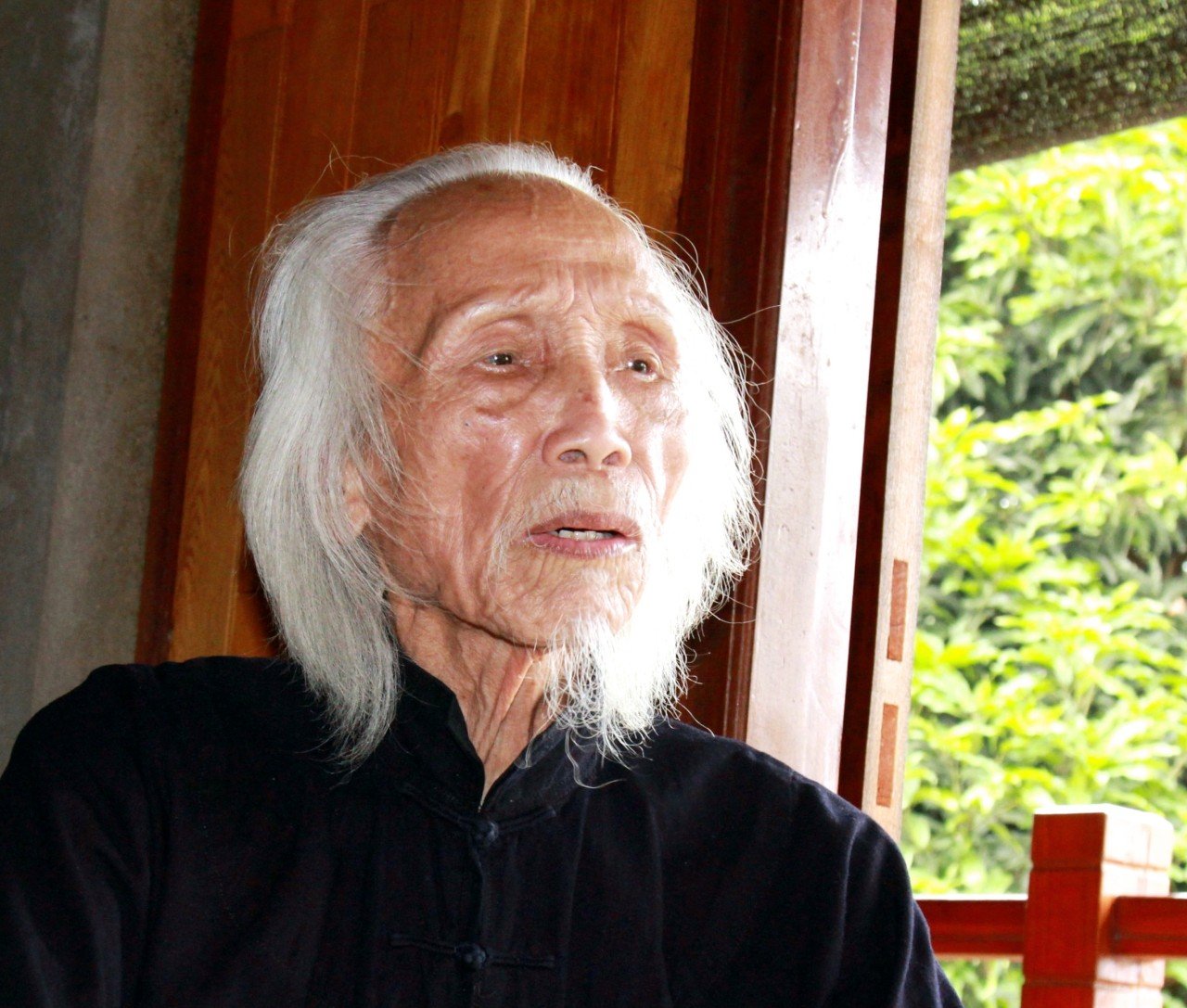
Distinguished artisan Lo Van Bien. Photo: Thanh Tien.
For the black Thai people in Nghia Lo, artisan Lo Van Bien has not contributed significantly to turning Thai xoe art into a heritage. The first Thai person from the Northwest region to be awarded the title of distinguished artisan by the President was the last remaining member of the Muong Lo performing arts team who once participated in performances with Thai King Deo Van Long during the Northwest under French rule. He is a pu da, indicating the position of an immortal. The old man is truly a legacy of the community. Every time artisan Lo Van Bien transformed into Tao Xuong and Tao Ngan (the first leaders of the Thai people when they set foot in this Northwest region), any black Thai person felt a surge of emotion.
Last September, a tourist group from Thailand attended a ceremony honoring the xoe art. Seeing the image of Mr. Bien riding a horse and leading dozens of people to re-enact the exodus of his people, the tourists cried. They cried until the festival ended, then pulled each other up to Nam Toc Tat, a waterfall in Thach Luong commune - where according to the legend of the Black Thai people, it is the path of spirits, the door to heaven for every soul after leaving this world. It is said that the Thai tourists that day had nearly 200 people. After going to Nam Toc Tat, each person asked for a handful of soil to bring back. That land is the ancestral land, the sacred land, the origin of our ancestors who in the past made a journey from Muong Lo to Dien Bien, through the Land of a Million Elephants and then down the Mekong River to form an ethnic community - the largest part of the Kingdom of Thailand today. Currently, the black Thai people live in 11 provinces, and every year they often come to Chonburi province to make offerings and honor their ancestral land of Muong Lo.
Pay Muong Lo, Mr. Bien speaks with me in his private house in Cang Na village after the festival. The old man says that Muong Lo has been the ancestral land of the black Thai people since Tao Xuong and Tao Ngan searched for land and established villages. The artisan whispered a verse from an ancient folk song. After many centuries, generations of Thai people followed the rivers and streams to the valleys to find land to establish Muong. Until now no one has clearly explained why they liked moving so much.
According to statistics from the cultural industry, the Thai community currently has more than 10 million people living in many countries around the world. Most of them “pay Muong Lo,” meaning they have an ancestral connection to Nghia Lo today. Every year, the Muong Lo Festival has at least 7 Thai delegations from different countries attending. In the country, the Northwest provinces, Thanh Hoa, Nghe An and many other lands are inhabited by black Thai people, who always identify themselves as originating from Muong Lo Yen Bai.
A famous ethnic group that often travels, strangely enough, Muong Lo - Nghia Lo today is considered the quintessential land of convergence, the heritage region of the land and people of the Northwest. The famous Muong Lo field of “first Thanh, second Lo, third Than, fourth Tac” has been the source of life for the people for many generations. Water from the Thia stream produces the famous delicious Muong Lo rice. Every tree and stone here contains the culture of an entire ethnic group.

The Vieng Cong well heritage. Photo: Thanh Tien.
Having just celebrated his ninetieth birthday in January of this year, Mr. Bien still enthusiastically takes me to the Vieng Cong well in Hanh Son commune, where legend has it that gourds fell from the sky and the seeds splattered out, creating humans. The Vieng Cong citadel was where the Cam Hanh insurgents led the Muong Lo ethnic groups against the Northern invaders in the nineteenth century. The ancient stone field at Thach Luong looks like a thousand buffaloes lying down and offering sacrifices to the gods at Nam Toc Tat waterfall.
The Thai people have the custom of worshiping their grandparents. Each family has a place of worship to show respect to the wife’s family. That is because people work hard to raise their daughters and dare to entrust them to a stranger, so husbands have to try and live their best.
The black Thai people love to tell stories. And there is a feeling that in this Nghia Lo land, from the stone in the stream to the tree in the forest, every object is embedded with stories. This forges rich cultural values, preserving the soul of a nation with a long-standing tradition. One day, the Secretary of the Yen Bai Provincial Party Committee, Mr. Do Duc Duy, took writer Vo Ba Cuong to Cang Na to meet Mr. Bien. The writer asked what Mr. Bien thought is the most valuable thing of the black Thai people. “It is the soul and spirit,” the artisan answered. The soul of a nation and a culture is the most outstanding value in this ancestral land of the black Thai people.
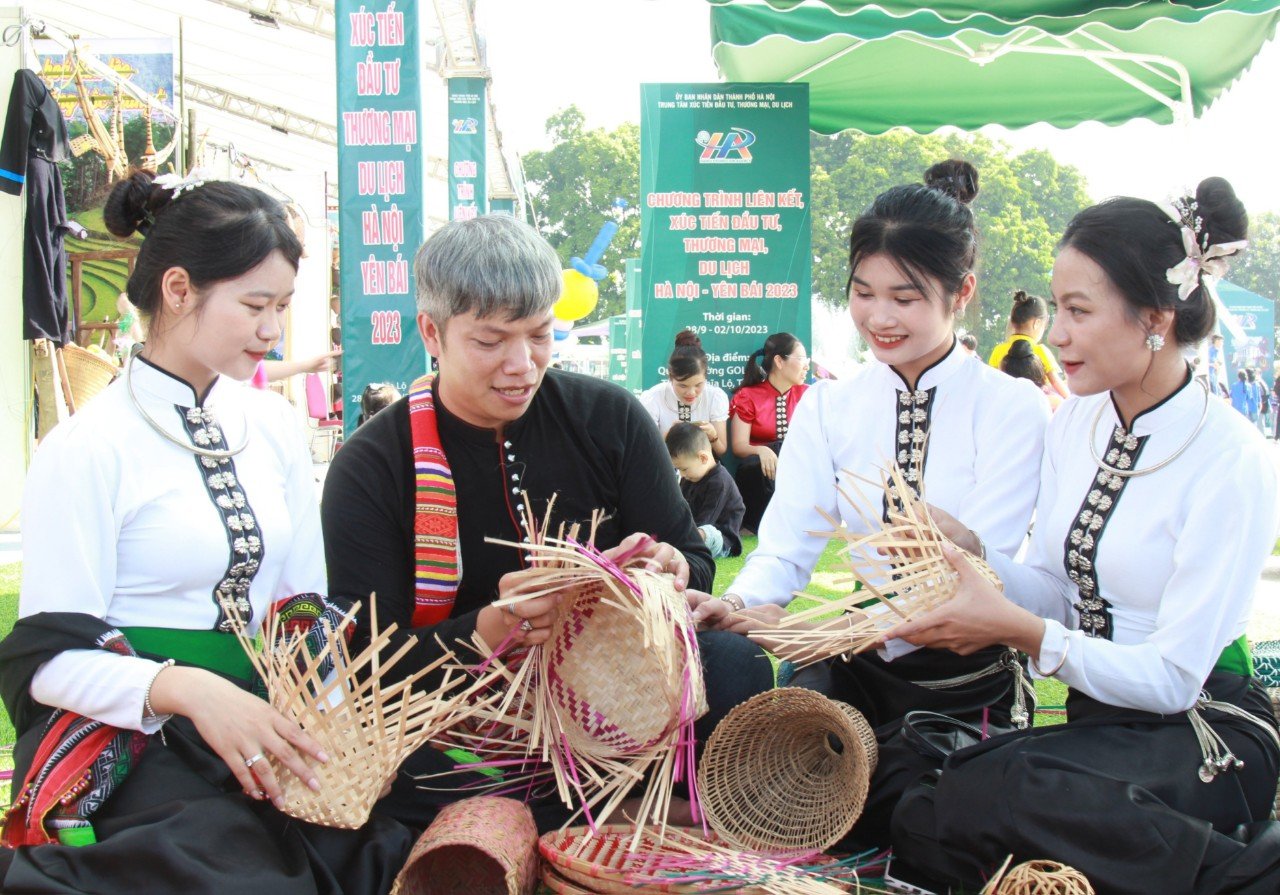
Muong Lo cultural festival. Photo: Thanh Tien.
“So what are black Thai people most afraid of?” the writer asks.
“Fear of losing their spirits. Over the past few decades, I have been searching for ancient xoe dances and folk songs of the black Thai people, putting effort into studying the writing of my compatriots to pass them on to my children, both for the most precious and scary things. The spirit of our people is our culture and heritage,” answered the artisan.
After listening, the Secretary of the Provincial Party Committee quietly left. A few days later, Mr. Bien, head of the research team, compiled a dossier to recognize Thai xoe as a cultural heritage.
The old man is not only a living archive but also participates in collecting, researching, and building records to turn the Northwest Thai spread into an intangible cultural heritage of humanity. Having been to Muong So (Lai Chau), Thuan Chau (Son La), and Muong Lay (Dien Bien) for several years, artisan Lo Van Bien searched for xoe dances in various customs such as stream bathing, Han Khuong, weddings, Tang crane, brocade weaving, etc.
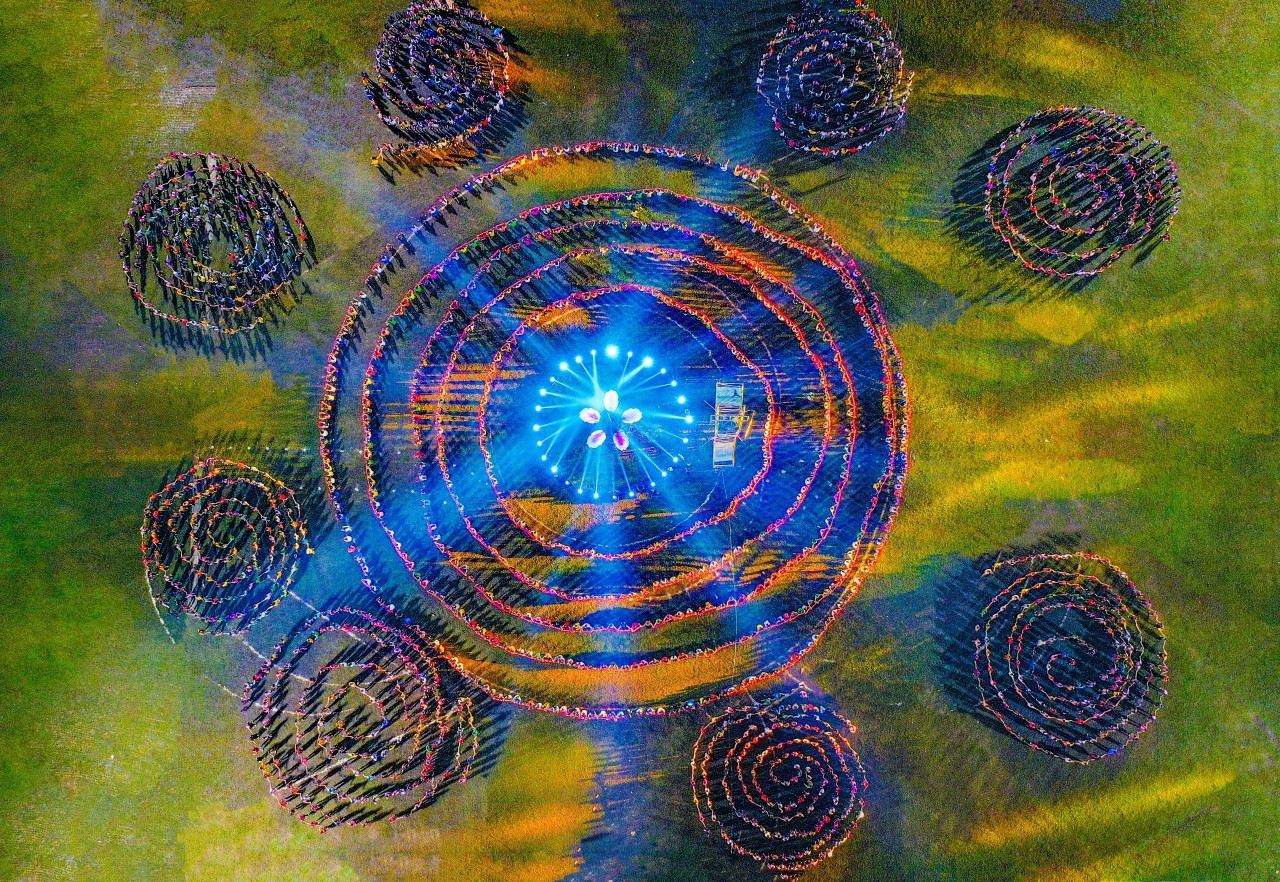
Bird's eye view of Thai xoe dance.
Mr. Bien collected all six ancient Thai xoe dances, including scarf dancing to invite wine, scarf tossing, moving forward and backward, holding hands, and a circle of applause. Writing documents used by Thai people across the country today was also compiled by artisan Lo Van Bien under orders from the Ministry of Home Affairs.
Perhaps that is why last year after Ms. Pauline Tamesis (United Nations Resident Coordinator in Vietnam) announced that Thai xoe became a heritage, many Thai people in the Northwest demanded that Mr. Lo Van Bien be recognized as a hero. Recalling this story, the old man says: “Cultural heritage is the common property of the community; everyone must preserve and promote it. I am no hero.”
After this year’s festival, Mr. Bien will return to collecting Thai culture, and teaching and transmitting ethnic culture in schools and villages. Thai xoe of Yen Bai in particular and three other Northwest provinces of Son La, Dien Bien, and Lai Chau are also included in the National Action Program to preserve and promote the value of intangible cultural heritage.
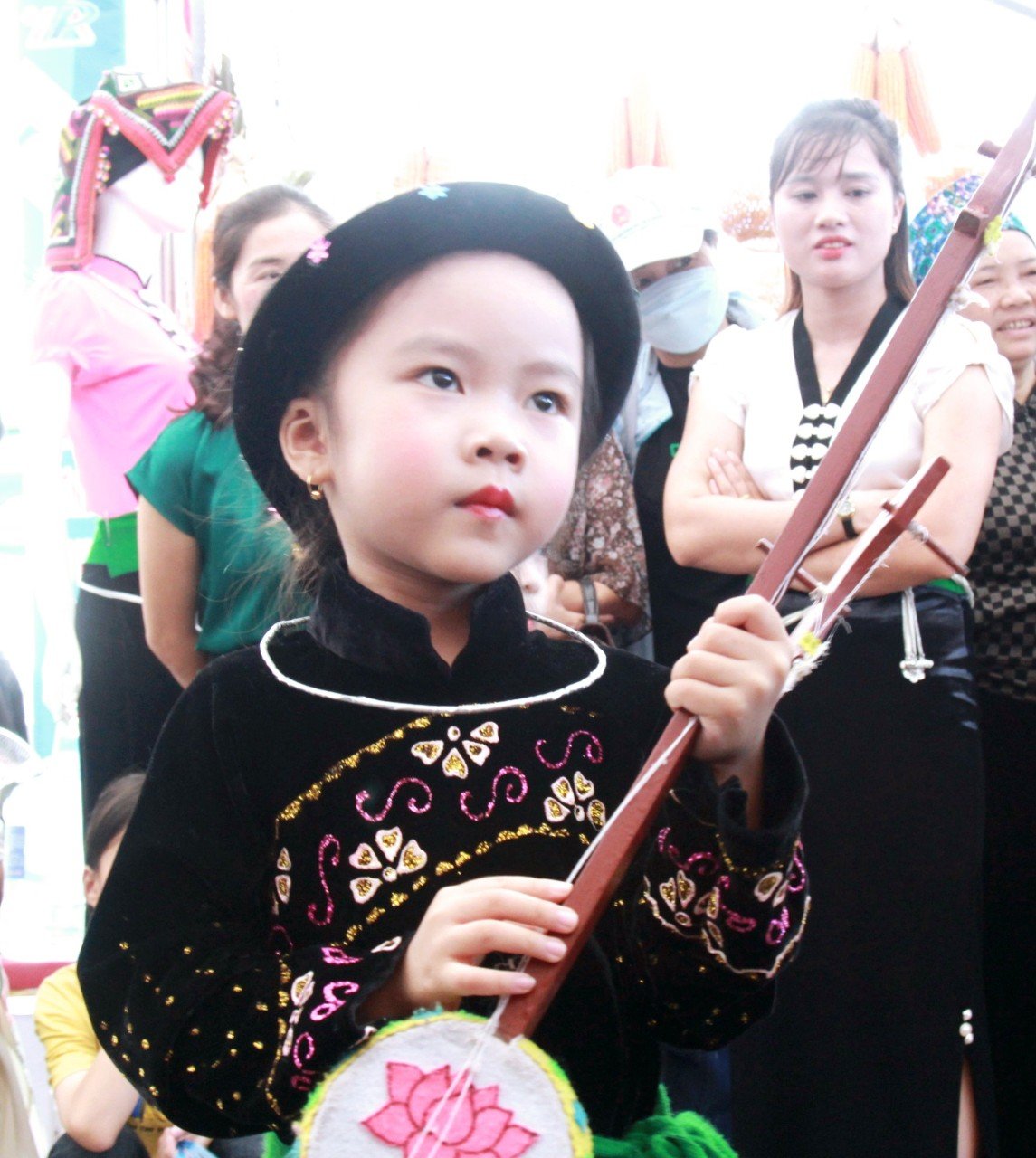
Thai xoe art is taught in Yen Bai schools. Photo: Thanh Tien.
In the land of Muong Lo - Nghia Lo today, the heritage of 6 ancient xoe dances has been introduced in all schools according to the “happy school” model. Heritage vitality is being preserved and nurtured every day. In particular, for Resolution No. 10 of the People’s Council of Yen Bai province on tourism development, Thai xoe is gradually becoming an asset and core value that awakens the potential of the western land of Yen Bai province. Xoe art was born by Thai people, raised by Thai people, and became a world heritage, but the value of that heritage does not stop at cultural and spiritual art. Still, it must be raised into national pride, brought back to life and bring economic value to the community.
Mr. Dinh Anh Tuan, Head of the Culture and Information Department of Nghia Lo town, states: “Many years ago, Nghia Lo was among the seven districts and towns in the country designated by the central government as a site to build district and regional cultural units. In the future, Nghia Lo will be a cultural and tourist town, becoming an economic, cultural, commercial, service, and tourism center of the western region of Yen Bai province. To realize development goals, the Thai xoe artistic heritage is the greatest value. Today, Nghia Lo people promote unique cultural values for tourism, especially introducing Thai xoe art to tourists.
I follow Mr. Tuan to the Nghia Loi and Nghia An areas, the first two communes in Nghia Lo town, to build community tourism models. The peaceful villages of the Thai people are pristine, with old stilt houses along streams and fields. Head of the Culture and Information Department of Nghia Lo town shares that in recent years, community tourism models in Nghia Lo have often cooperated with folk music crews to perform the xoe art for tourist service. Each performance crew has 5 to 7 members, mainly performing folk cultural performances and indispensable performing the ancient art of xoe.
This heritage is gradually becoming an asset, sustaining Nghia Lo’s identity and happiness.
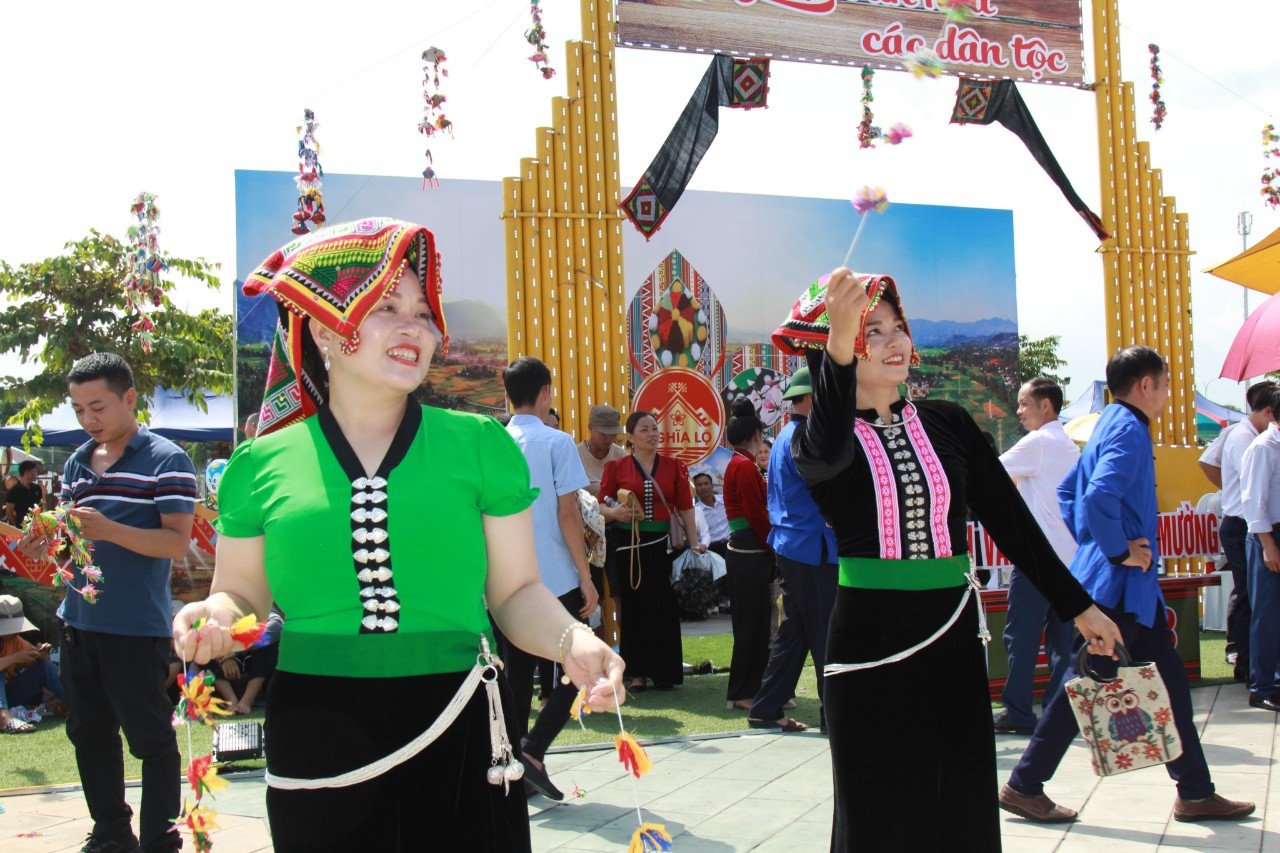
Thai people in Muong Lo. Photo: Thanh Tien.
Translated by Quynh Chi

(VAN) In 2024, over 295 million people across 53 countries and territories faced acute hunger—an increase of almost 14 million people compared to 2023, while the number of people facing catastrophic levels of hunger reached a record high.

(VAN) World Environment Day 2025 (June 5) carries the theme 'Beat Plastic Pollution' continuing to emphasize the global urgency of addressing the plastic waste crisis.

(VAN) This was the assessment shared by experts at the workshop titled 'Assessing the Role and Potential of Low-Emission Rice Production Systems in Vietnam,' held on the morning of May 19.

(VAN) Cai Rong Port is the fisheries control center of Quang Ninh, helping to monitor fishing vessels, combat IUU fishing, and remove the EC's 'yellow card'.

(VAN) The German Agricultural Society (DLG) explores the possibility of establishing a mechanization service center in Vietnam’s Mekong Delta to support farmers in accessing and utilizing advanced machinery.

(VAN) On May 16, the Department of Water Resources Management, in collaboration with the Food and Agriculture Organization of the United Nations (FAO), held a signing ceremony for the GEF-8 project document.

(VAN) Food safety, mechanization, vocational training, and market opening are key areas of cooperation expected between the Vietnamese Government and the Federal Republic of Germany.